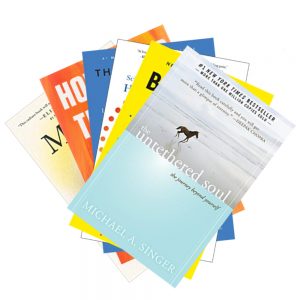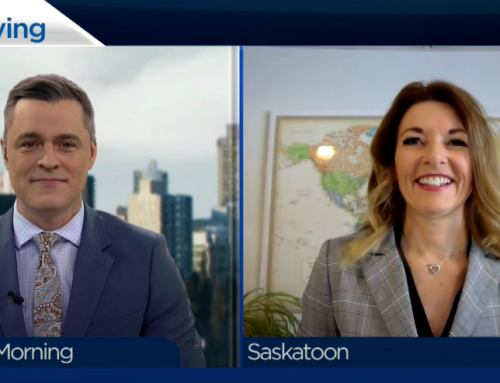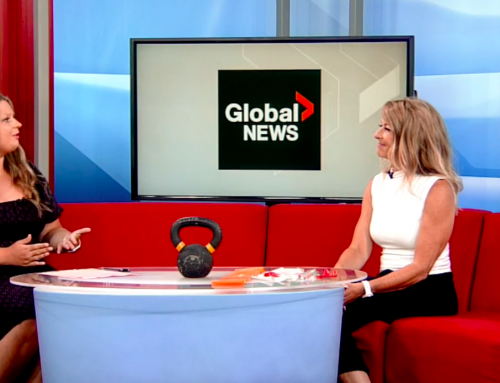I’ve always been an avid reader, but a strange thing happened when COVID started. Suddenly I could not sit still and focus. Reading was unbearable. I would sit down with a book, attempt a line or two, get distracted, and find myself doing something else. I wanted to take in the words but my brain didn’t want to read them.
Then I discovered audio books, which opened up a whole new way for me to read. I found that if I kept myself busy doing something relatively mindless (cooking dinner, doing a puzzle), I could listen to a book and take in the information. Hallelujah! I could still enjoy books but with my ears instead of my eyes.

I realized very quickly that I do not like other people reading fiction to me. I need to hear fiction in my own voice or it feels forced and weird. So, I focused on non-fiction, which my brain very much enjoys hearing in someone else’s voice.
Slowly, I have found I can sit and read again, but only with a few particular books and only in small doses. I still enjoy the audio books, but it’s nice to be able to choose between listening and reading now.
The following is a list of the books I have enjoyed listening to the most in the past 2 years. One exception is The Untethered Soul, which I am currently rereading for the sixth time. It is one of my favorite books, and I get something new from it each time I read it. I wanted to make sure I included it, even though it technically wasn’t one of my audio book discoveries.
Whether reading or listening, I hope you find some gems for yourself in this list.
My List of Recent Favorites:
1. The Untethered Soul – Michael A. Singer
As I mentioned above, this is one of my all-time favorite books. I feel calm come over me anytime I read it – that is probably why I’ve read it so many times. The author has a way of making complicated and confusing subjects simple and clear. From understanding the mind and how it keeps us trapped and unhappy, to understanding the soul and how to be free from the suffering the mind causes, this book explains it all. I feel like I understand myself better every time I pick it up.
2. How to Do the Work – Dr. Nicole LePera
You might have heard of this book already, as it has quite a following on social media. If you aren’t familiar with it, I would suggest getting a copy to read. Dr. Nicole is known as the holistic psychologist online, and her work is very much in alignment with the principles of naturopathic medicine. In addition to the great tools and stories she shares around mental health and wellness, she talks about things like nutrition and gut health – one of the cornerstones of our medicine! She truly had a holistic approach to mental health, one that I think that many people could benefit from.
3. The Way of Integrity – Martha Beck
If you aren’t familiar with Martha Beck, you have been missing out. I have read both of her memoirs – one about the birth of her son with Down’s Syndrome and one about how she left Mormonism – and I just enjoy seeing the world through her eyes. Not only is she an engaging writer, but she is also really good at making complex issues seem clear and do-able. This book is a map of how to walk yourself through hard things – timely, given the state of the world these days. It resonated deeply with me and has helped me navigate quite a few hard things in my own life. I’ve read it more than once and I’m pretty sure it’s one I will continue to go back to again and again.
4. The Body Keeps Score – Bessel van der Kolk
I have had this book on my list for quite awhile but I put off reading it because I expected it to be a dry, technical rehash of physiological responses to stress. I could not have been more wrong. This book literally blew my mind. It is so engaging and well written that I couldn’t put it down. It also shifted my perspective on what trauma is. Having not experienced most of the things we tend to think of as traumatic (war, abuse, starvation, etc.), I did not expect to see so much of myself in the stories of people who have survived those kinds of things. It helped me realize that trauma can be anything that we are unable to process when it happens – no matter how small or insignificant we may think it is. And also, that responses to trauma, no matter the cause, are all similar and can not only be understood, but also healed.
5. The Way Out – Alan Gordon
This is a simple, yet highly effective method (with lots of science behind it, incidentally) for teaching people how to manage pain. But it’s not only for people who are in physical pain. Anyone could use this technique to improve their quality of life. If your pain exists on a more mental or emotional level (like negative thoughts or constant worry, for instance), this could still be a great support. I would recommend this book to anyone who needs a simple and clear tool to help manage stress or improve their quality of life.
6. Breath – James Nestor
2021 was all about breathing for me. Between reading this book and working with Lisa Kusch, our breathing therapist, I have discovered the simple yet profound power that proper breathing has on our health. Breathing is something we rarely think about – after all, we all do it without having to think about it – but it affects every single aspect of our health. And most of us aren’t doing it as well as we could be. If I was only able to make one suggestion for how to go about improving your health, I would say start by making sure you breathe properly. Reading this book (and/or working with Lisa) is a great place to start learning how to do that.
Written By: Dr. Michelle Marcoux, N.D.





